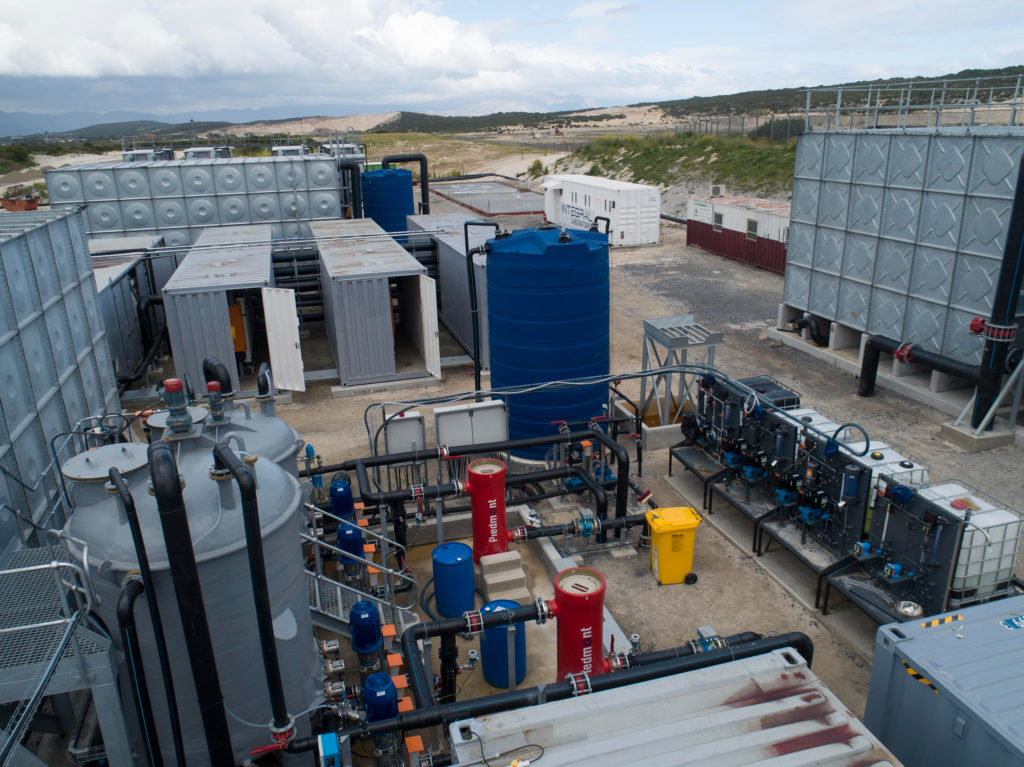Projects in the City’s New Water Programme are progressing well, despite the challenges of the global pandemic. The programme aims to bring new water online to ensure a safe, reliable supply for years to come through groundwater abstraction, desalination and water reuse, as well as optimising surface supply through clearing thirsty invasive alien vegetation.
The City’s New Water Programme (NWP), which forms part of the City of Cape Town Water Strategy: Our Shared Water Future, aims to build resilience to the effects of climate change, and future droughts that are expected to be more frequent and severe, and to ensure a safe, reliable water supply for generations to come.
The City’s Water Strategy was crafted and adopted in response to the worst drought on record, and served as the foundation for the New Water Programme, through which the City has accelerated efforts to diversify our water sources. The programme aims to produce approximately 300 million litres (Ml) per day through groundwater abstraction, desalination and water reuse by 2030.
“We are pleased with the progress in actioning these projects, despite the challenges associated with the pandemic. We want to thank the team who is working hard to ensure these plans become a reality to benefit our residents,” said Mayco Member Xanthea Limberg.
 Water reuse
Water reuse
Water reuse refers to treated wastewater that is purified through an advanced purification process to produce drinking-quality water. The City is currently in the design-phase of the permanent Faure New Water Scheme project, which aims to provide 70 ML per day (ultimately increasing to 100 ML per day, if necessary). This water reuse scheme is expected to be completed in 2026.
The City has been preparing for this through consultation with a range of local and international industry experts, as well as civil society, while gaining experience by running a smaller-scale Demonstration Plant currently located at the Zandvliet Wastewater Treatment Works (see below).
Thus far, 17 different stakeholder groups have been engaged, involving participation from over 300 key stakeholder representatives from various branches of government, public health officials, water boards, water research institutions, industries, sustainable development groups, environmental organisations, academics, religious groups, and traditional healers. So far, those consulted have presented helpful considerations to assist the City in implementing water reuse projects.
A peer review panel, including local and international experts, is in the process of being set up through the National Water Research Commission.
Along with Beaufort West and Ballito in South Africa, water reuse is a conventional and significant part of the bulk drinking water supply in various water stressed cities within the United States, Singapore, and Windhoek, among others. Windhoek has been drinking treated wastewater for over 50 years. Perth in Australia is also in the process of planning a reuse scheme.
• The temporary Demonstration Plant
The water reuse temporary Demonstration Plant was originally conceptualised, authorised and constructed as a temporary emergency intervention in response to the severe drought. However, the dam levels supplying the City of Cape Town recovered before the emergency plant was commissioned. Recognising that this created potential for additional stakeholder engagement around this concept, it was therefore repurposed into a Demonstration Plant.
It has been in service since mid-2019 and will be available to the City until the end of May 2021 when the contract with the supplier will come to an end.
Over the contract period, the City has been extensively validating water quality results to ensure that the water from the plant is safe to drink and a viable option for Cape Town. The strictest available standards for purified wastewater are being used in assessments, including international standards prescribed by the World Health Organisation and United States Environmental Protection Agency, and other countries.
The purified water produced by the Demonstration Plant has not been integrated into the drinking water distribution network. The water produced is currently being used for industrial service water in the operation of the existing Zandvliet Wastewater Treatment Works.
The priority for the City is to learn from the operation of the temporary Demonstration Plant.
Picture: Supplied/City of Cape Town

